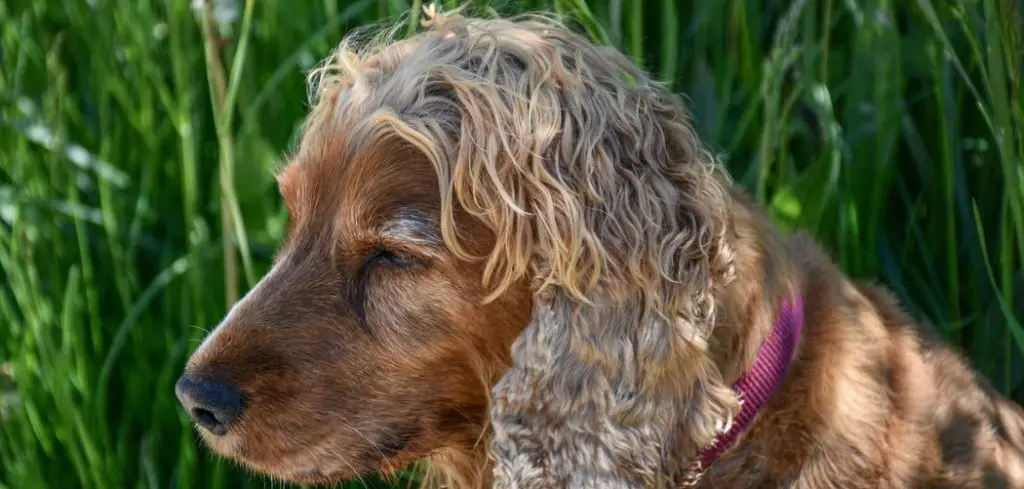When an old dog is vomiting and has diarrhea and won’t eat, it’s more than just a passing stomach bug—it’s a signal that their aging body may be struggling with a serious health issue.
Senior dogs have a harder time bouncing back from gastrointestinal distress, and the combination of vomiting, diarrhea, and appetite loss can quickly lead to dehydration and weakness.
We outline the common causes, especially in older dogs, to help you know what to do and help your dog recover safely.
Old Dog Vomiting and Diarrhea and Not Eating: Why It Happens
This combination of symptoms in senior dogs is often linked to age-related diseases such as kidney failure, liver dysfunction, pancreatitis, gastrointestinal infections, or cancer.
Older dogs also have more fragile immune and digestive systems, so even mild triggers can cause severe reactions. When they stop eating, their energy reserves deplete quickly, making intervention even more urgent.

Old Dog Vomiting and Diarrhea and Not Eating: Common Causes
1. Age-Related Kidney Disease
Chronic kidney disease is very common in older dogs and can cause vomiting, diarrhea, and appetite loss due to the buildup of toxins the kidneys can no longer filter efficiently.
Dogs may also drink excessively, urinate more often, or become lethargic.
The vomiting is typically frequent and accompanied by nausea, while diarrhea may be loose and watery.
If your senior dog shows these signs along with weight loss or bad breath, kidney function testing is essential.
Early detection and dietary management can slow disease progression.
2. Liver Disease in Senior Dogs
Liver problems are another age-related condition that can cause vomiting and diarrhea in older dogs.
As the liver becomes less effective at processing waste and toxins, digestive distress often follows.
This leads to a lack of appetite, vomiting (sometimes bile or blood), and pale gums or jaundice.
Older dogs with liver disease may also act disoriented or confused, especially in later stages.
If your dog shows these symptoms, prompt lab work and imaging will help your vet assess liver health and determine appropriate treatment.
Related: Dog vomiting and not eating (Causes and when to worry)
3. Gastrointestinal Infections or Parasites
Even senior dogs can contract bacterial or viral infections—especially if their immune systems are weakened.
Infections such as parvovirus (less common in older dogs but still possible) or bacterial gastroenteritis can cause severe vomiting, diarrhea, and appetite loss.
Parasites like giardia or whipworms may also trigger chronic or intermittent symptoms.
These issues can be diagnosed through stool samples and bloodwork.
Prompt treatment with fluids and medication can prevent further deterioration.
4. Pancreatitis in Older Dogs
Pancreatitis, or inflammation of the pancreas, becomes more dangerous in senior dogs.
It can develop suddenly or build up over time, especially in dogs fed fatty foods.
Common symptoms include vomiting, diarrhea, a hunched back due to abdominal pain, and a complete refusal to eat.
Older dogs are more likely to suffer complications like dehydration, electrolyte imbalances, or organ stress when this condition occurs.
A vet can confirm pancreatitis through blood tests and recommend supportive care.
Related: Old Dog Vomiting and Not Eating (Here’s why)
5. Cancer or Gastrointestinal Tumors
Sadly, one of the more serious causes of vomiting, diarrhea, and appetite loss in old dogs is cancer.
Gastrointestinal tumors can interfere with digestion and nutrient absorption, causing chronic nausea and intestinal upset.
While not every case of vomiting and diarrhea in senior dogs is cancer, these signs—especially if persistent—should always be checked out.
Imaging such as ultrasound or x-rays may be needed for diagnosis.
What to Do If Your Old Dog Is Vomiting, Has Diarrhea, and Won’t Eat
Because older dogs are more sensitive to fluid and nutrient loss, early intervention is key.
Here’s how to help your dog while preparing for a veterinary visit:
Withhold food for 6–12 hours if vomiting is active, then offer small amounts of bland food (boiled chicken and rice).
Keep water available at all times, and offer ice chips if vomiting continues.
Use an electrolyte solution designed for pets (ask your vet) to help with dehydration.
Monitor your dog closely for signs of weakness, collapse, or excessive panting.
Avoid giving over-the-counter medications without vet approval, especially in senior pets.
Even if your dog improves slightly, prolonged diarrhea and vomiting should never be ignored in an older dog.
When to Call or Visit Your Vet
You should see your vet immediately if your old dog is vomiting, has diarrhea, and is not eating and:
Vomiting and diarrhea continue for more than 24 hours
Your dog is weak, disoriented, or unsteady on their feet
There’s blood in the vomit or stool
Your dog hasn’t had a bowel movement or urinated in over 24 hours
Your dog has a history of kidney or liver disease
They are refusing water or becoming dehydrated
Veterinarians may recommend bloodwork, urinalysis, x-rays, or an ultrasound to determine the cause and start supportive care, which may include IV fluids and medications.
Related: Old Dog Not Eating Drinking Lots of Water and Vomiting (Causes and when to worry)
Key Takeaway
When your old dog is vomiting, has diarrhea, and won’t eat, it’s not something to wait out.
Senior dogs can become dangerously dehydrated or weak much faster than younger dogs.
Whether the cause is kidney failure, pancreatitis, infection, or something else, swift diagnosis and treatment offer the best chance for recovery.
Listen to your dog’s body language, trust your gut, and don’t hesitate to call your vet when these symptoms appear.
Your attentiveness could make all the difference in their golden years.
